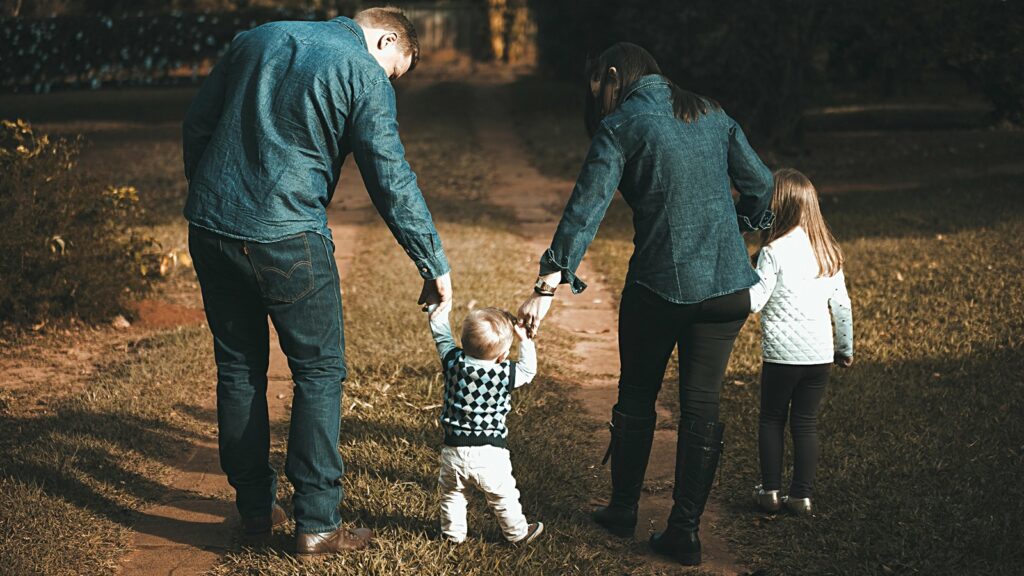Every child is a miraculous creature who is capable of not only living a creative, productive, and personally fulfilling life, but also shaping the world around them so that others can live creative, productive, and happy lives. You can also change it.
So why do we live in a world where some children grow up to have a positive impact on the world, while others grow up to commit murder, theft, and rape? Is there a way to raise a child not to do something?
I think it means raising children without being forced, regardless of gender. My parenting philosophy is based on the idea of “taking children seriously” and rejecting the traditional idea that children need to be forcefully molded and molded for their own (or others’) benefit. I deny it. Instead, it advocates a creative, non-coercive approach to family life.
What’s wrong with forced child rearing?
Coercion has several major, distinct, but related effects. First, we assume that parents are right, when in reality, parents can be, and often are, wrong. When this novel was invented, parents did not allow their children to read the book. That’s because it was considered a bourgeois pastime that deprived children of the opportunity to spend healthy time outdoors. This may seem silly to us now. “Reading is good!” Children need to read more! ”But those parents honestly thought they were right and forced their children to follow it. Parents today aren’t worried about their kids spending a lot of time reading, but they are concerned about “screen time.” Will people in the future look back and think that today’s screen time mandates were as wrong as our parents of the past were concerned about books?
Second, forcing blocks error correction. Error correction is essential to any kind of progress, whether civilized or personal. Things should be discussed and discussed, and should not be resolved by authority or force. In the latter case, and more generally in the case of coercion, the error is fixed and not fixed. As an example, when our child was young (before he could speak), we would change his diaper as soon as he pooped, even if he was in pain. We were afraid of diaper rash, and in our hearts we knew we were doing the right thing. We mistakenly assumed that the reason our son didn’t want to change his diaper was something bad, like being rebellious. One day we decided to wait and it turned out that he wasn’t actually finished pooping. And when it was done, he asked me to change it. In other words, we were forcing our children for the wrong reasons, and we didn’t realize we were wrong until we stopped forcing them.
The effects of enforcement are unpredictable. This is the third point. Many children still seem to thrive, but some grow up with emotional problems and a sense of entitlement to coerce others. In some cases, the consequences can be dire. Because we see our children as a different kind of human being, we tend to forcefully control them, how we would feel if we were treated that way, and what negative effects it would have. I don’t think about it. Being controlled is a completely unpleasant and unfulfilling way of life. As a result, many children end up “cheating” when things get difficult or when they have the slightest freedom. This “misbehavior” is considered “evidence” that further enforcement is necessary.
Imagine you are in a relationship where you are being coercively controlled by your partner. If you react badly, they conclude that further coercion is necessary to enforce their will. Now, imagine that you have been controlled like this all your life. How do people who have not had the opportunity to learn how to live freely spend their time? As a result, by the time children are released from home at age 18, many have no idea how to cope with not being controlled or how to interact with others without being coerced. It turns out I don’t know. Therefore, when a child is born, they forcefully raise the child without knowing that there is a better way to relate.
So what are the alternatives? It all comes down to creative problem solving. Instead of forcing your child to follow your commands, do what you both like. You may not always come up with a good solution in the moment, but if the thrust of your parenting philosophy points loosely in the direction of consent and creativity, it’s not an experience of constant bickering; It will be a fun and enjoyable experience. Think about small things with your child.
Children who are raised without coercion and who are guided rather than forced learn, among other things, that they can solve problems through creativity and fun. You will also learn that consent is paramount.
That’s how we are raising our son. We believe that he is a human being like us, that his wishes are as important as ours, that problems must be solved with creativity rather than force, and that disagreements are arguable. recognizes that authority does not own truth; , above all, we can and will always be wrong about all sorts of things.
Ali is the author of Ib’s Endless Search for Satisfaction.

